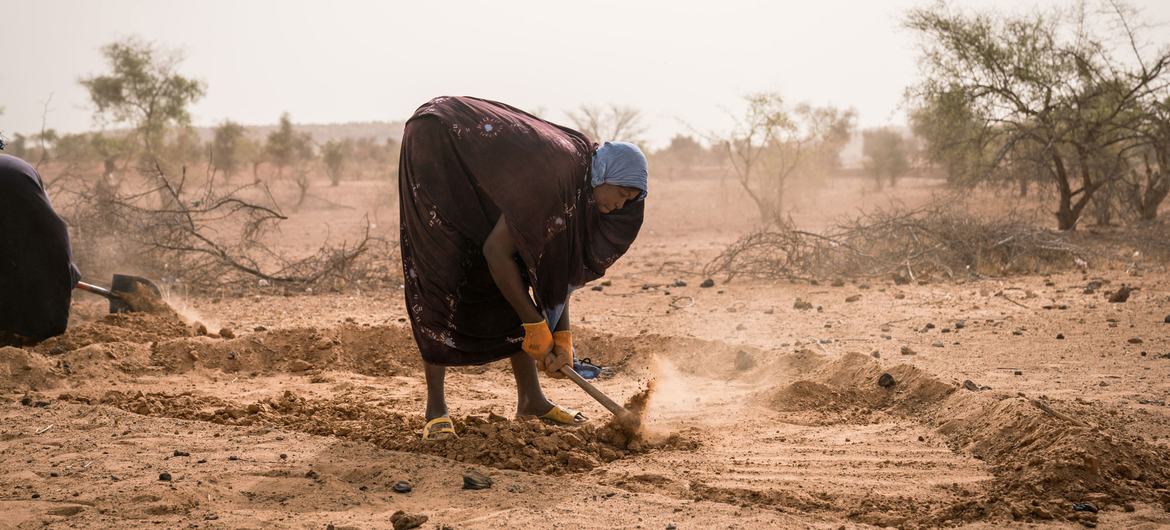The World Food Programme (WFP) will increase its food and nutrition assistance programme this month in West and Central Africa in hopes of reaching 7.3 million people as the June-August lean season is under way at a time when hunger levels are high and food resources are low.
The programme will aid the response plans of national governments in Burkina Faso, Cameroon, Central African Republic, Chad, Mali, Mauritania, Niger and Nigeria.
With the right amount of funding, WFP’s initiative can reach 12 million people, but with diminishing resources available, humanitarians working with the programme have reached fewer people than anticipated.
This comes as malnutrition in West and Central Africa is reaching alarming levels along with a projection that 55 million people will face acute hunger during the lean season.
Chris Nikoi, WFP’s Regional Director for Western Africa, said that this crisis exposes the need for “transformative solutions” to assist vulnerable families with food and other needs.
“We need to continue prioritising emergency response for those most in need,” Nikoi said. “But, we need more investment in sustainable solutions to help strengthen food security, improve agricultural productivity and purchasing power of families at the right time and cushion economic and climate shocks.”
Response aims
Many dealing with acute hunger in West and Central Africa have been left without assistance and risk having their situation worsened since funding for the programme has not kept “apace” with increasing crises in the region.
WFP said this is worrying since the 2024 seasonal forecast reveals weather that could disrupt farming and prolong the next lean season.
“The escalation of humanitarian needs far outstrips available resources,” Nikoi said. “The only way out of this cycle is to prioritise durable solutions.”
WFP’s current aid
Currently, WFP said it is supporting “long-term transformative hunger solutions” and working on improving government systems that increase communities’ shock resilience via social protection and investments in inclusive food systems.
WFP programmes have helped to, among other things, restore degraded lands to food and fodder production, support children’s education, improve access to food and boost incomes across the Sahel and provide more frequent and diversified meals to civilians in Nigerian villages.
The programme said initiatives including “strengthening poor families’ purchasing power with timely shock-responsive social protection schemes need to be prioritised and expanded as a humanitarian response alone is financially not sustainable and does not address the root causes of hunger and malnutrition.”





